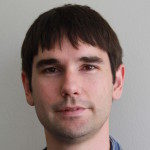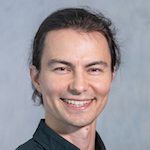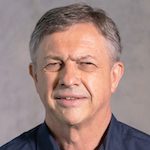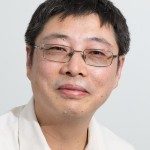
Research on electrical energy systems focuses broadly on generation, transmission, conversion and control of electrical energy, including renewable energy. Six permanently employed lecturers form the division for Electrical Energy and, together with a relatively high number of postgraduate students, are involved in this research. Facilities comprise, amongst other things, three large, world-class laboratories for research on high-voltage power electronics and electrical machines. Tests can be done in these laboratories at power and voltage levels of up to 3 MW and 400 kV respectively.
The research on power systems includes work on wideband modelling and parameter estimation of power system components by application of system identification techniques. Instrumentation for system identification measurements and the measurement of wideband waveforms on high-voltage transmission systems form part of this research. As an example of what is done, a number of large generator units were recently tested for modelling and parameter identification purposes in conjunction with the Electricity Supply Commission (Eskom) of South Africa. The way electrical loads are modelled is cardinal to the analysis, operation and design of energy system networks, particularly in rural areas. Load modelling and load voltage sensitivity for energy system analysis therefore receives considerable attention in research on power systems.
Evaluation of the performance of power-line insulators made of various materials in polluted environments forms an important part of the high voltage research. For example, cyclo-aliphatic insulators of different lengths have been energised at a coastal test station to evaluate their pollution performance. A pollution monitoring device has been developed and calibrated in this regard.
Power electronic converters play a vital role in electrical energy conversion and control. The power electronic research focuses on the development and control of new power electronic converter technology and the application thereof. This includes research on multilevel converters, cost-effective AC-to-AC converters, single-to-three phase converters and matrix converters. Applications for these converters are active filters, voltage regulation devices, conversion of renewable energy and rural electrification. An example is the 3 kV active filter/regeneration device for a traction substation that has recently been developed.
Research on electrical machines and drives focuses on the optimum design and control of permanent magnet, reluctance and induction machine drive and generator systems. Optimum design of these machines is achieved using finite-element analysis and optimisation algorithms. New permanent-magnet generators are designed and developed, for example, for direct-drive renewable energy applications such as wind, hydro and wave energy. A study on linear Stirling-engine generator power supply was launched recently. Another focus of the research is on drive systems for electrical transportation, such as in-wheel drives for electrical vehicles. A parallel hybrid electrical vehicle was recently developed and tested. Position sensorless control, as well as optimum efficiency control, also form an integral part of the research on electrical drives.
For further information on the research focus areas in the Division for Electrical Energy, please visit the websites below. Postgraduate bursaries are available for Masters and PhD studies.
Contact person: Prof. MJ Kamper OR Tel: +27-21- 808 432
Electrical Machines and Drives
Visit the Electrical Machine Laboratory website for more information.
High Voltage Research
Visit the High Voltage Research Laboratory website (page under construction) for more information.
Power Electronic Converters
Visit the Power Electronics Group website for more information.
Power System and Transformer Modelling
Contact Prof. Johan Vermeulen for more information on this research activity.
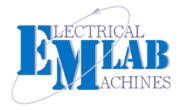
Electrical Machines Laboratory US Electrical Machines Laboratory (EMLab) undertakes research, design and development of both conventional and special electrical machines, applied magnetics and power electronics.
Researchers at US Electrical Machines Laboratory (EML) have been working together on a series of design and development projects, including:Battery powered EVs Transverse flux machine,High speed PM generator SRM machine drive, IPM traction motor drive Novel PM hub motor, Advanced motion control and Gearless wind generators.
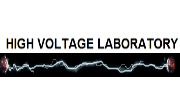 High Voltage Laboratory The Department of Electrical Engineering of the University of Stellenbosch was founded in 1944. From the outset High Voltage Engineering was an important element of the Department. The early professors, Prof. Alan Heydorn and Prof Hanno Reuter both had a solid high voltage training in accordance with the German school. The undergraduate lectures are in Afrikaans, but postgraduate work and research is conducted in English.
High Voltage Laboratory The Department of Electrical Engineering of the University of Stellenbosch was founded in 1944. From the outset High Voltage Engineering was an important element of the Department. The early professors, Prof. Alan Heydorn and Prof Hanno Reuter both had a solid high voltage training in accordance with the German school. The undergraduate lectures are in Afrikaans, but postgraduate work and research is conducted in English.
 Power Electronics Group This lab does research mainly for industry and governmental organisations. Our clients include ESKOM and SANERI.
Power Electronics Group This lab does research mainly for industry and governmental organisations. Our clients include ESKOM and SANERI.



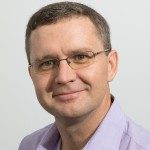
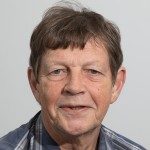
- Research activities
-
Research on electrical energy systems focuses broadly on generation, transmission, conversion and control of electrical energy, including renewable energy. Six permanently employed lecturers form the division for Electrical Energy and, together with a relatively high number of postgraduate students, are involved in this research. Facilities comprise, amongst other things, three large, world-class laboratories for research on high-voltage power electronics and electrical machines. Tests can be done in these laboratories at power and voltage levels of up to 3 MW and 400 kV respectively.
The research on power systems includes work on wideband modelling and parameter estimation of power system components by application of system identification techniques. Instrumentation for system identification measurements and the measurement of wideband waveforms on high-voltage transmission systems form part of this research. As an example of what is done, a number of large generator units were recently tested for modelling and parameter identification purposes in conjunction with the Electricity Supply Commission (Eskom) of South Africa. The way electrical loads are modelled is cardinal to the analysis, operation and design of energy system networks, particularly in rural areas. Load modelling and load voltage sensitivity for energy system analysis therefore receives considerable attention in research on power systems.
Evaluation of the performance of power-line insulators made of various materials in polluted environments forms an important part of the high voltage research. For example, cyclo-aliphatic insulators of different lengths have been energised at a coastal test station to evaluate their pollution performance. A pollution monitoring device has been developed and calibrated in this regard.
Power electronic converters play a vital role in electrical energy conversion and control. The power electronic research focuses on the development and control of new power electronic converter technology and the application thereof. This includes research on multilevel converters, cost-effective AC-to-AC converters, single-to-three phase converters and matrix converters. Applications for these converters are active filters, voltage regulation devices, conversion of renewable energy and rural electrification. An example is the 3 kV active filter/regeneration device for a traction substation that has recently been developed.
Research on electrical machines and drives focuses on the optimum design and control of permanent magnet, reluctance and induction machine drive and generator systems. Optimum design of these machines is achieved using finite-element analysis and optimisation algorithms. New permanent-magnet generators are designed and developed, for example, for direct-drive renewable energy applications such as wind, hydro and wave energy. A study on linear Stirling-engine generator power supply was launched recently. Another focus of the research is on drive systems for electrical transportation, such as in-wheel drives for electrical vehicles. A parallel hybrid electrical vehicle was recently developed and tested. Position sensorless control, as well as optimum efficiency control, also form an integral part of the research on electrical drives.
For further information on the research focus areas in the Division for Electrical Energy, please visit the websites below. Postgraduate bursaries are available for Masters and PhD studies.
Contact person: Prof. MJ Kamper OR Tel: +27-21- 808 432
Electrical Machines and Drives
Visit the Electrical Machine Laboratory website for more information.
High Voltage Research
Visit the High Voltage Research Laboratory website (page under construction) for more information.
Power Electronic Converters
Visit the Power Electronics Group website for more information.
Power System and Transformer Modelling
Contact Prof. Johan Vermeulen for more information on this research activity.
- Laboratories and Groups
-

Electrical Machines Laboratory US Electrical Machines Laboratory (EMLab) undertakes research, design and development of both conventional and special electrical machines, applied magnetics and power electronics.
Researchers at US Electrical Machines Laboratory (EML) have been working together on a series of design and development projects, including:Battery powered EVs Transverse flux machine,High speed PM generator SRM machine drive, IPM traction motor drive Novel PM hub motor, Advanced motion control and Gearless wind generators.
 High Voltage Laboratory The Department of Electrical Engineering of the University of Stellenbosch was founded in 1944. From the outset High Voltage Engineering was an important element of the Department. The early professors, Prof. Alan Heydorn and Prof Hanno Reuter both had a solid high voltage training in accordance with the German school. The undergraduate lectures are in Afrikaans, but postgraduate work and research is conducted in English.
High Voltage Laboratory The Department of Electrical Engineering of the University of Stellenbosch was founded in 1944. From the outset High Voltage Engineering was an important element of the Department. The early professors, Prof. Alan Heydorn and Prof Hanno Reuter both had a solid high voltage training in accordance with the German school. The undergraduate lectures are in Afrikaans, but postgraduate work and research is conducted in English. Power Electronics Group This lab does research mainly for industry and governmental organisations. Our clients include ESKOM and SANERI.
Power Electronics Group This lab does research mainly for industry and governmental organisations. Our clients include ESKOM and SANERI. - Research Staff
-
 POWER ELECTRONICS AND APPLICATIONSUtility applications of power electronic converters
POWER ELECTRONICS AND APPLICATIONSUtility applications of power electronic converters ELECTRICAL DRIVE SYSTEMSModelling, design, optimization and testing of electrical drive systems
ELECTRICAL DRIVE SYSTEMSModelling, design, optimization and testing of electrical drive systems ANTENNAS AND MICROWAVE CIRCUITSDesign and modelling of antennas and microwave devices
ANTENNAS AND MICROWAVE CIRCUITSDesign and modelling of antennas and microwave devices ELECTRICAL ENERGY SYSTEMSEfficient energy conversion; Linear generators
ELECTRICAL ENERGY SYSTEMSEfficient energy conversion; Linear generators (Emeritus) LOAD MODELLING AND RENEWABLE ENERGYLoad modelling; Energy management; Grid integration of renewable energy
(Emeritus) LOAD MODELLING AND RENEWABLE ENERGYLoad modelling; Energy management; Grid integration of renewable energy







